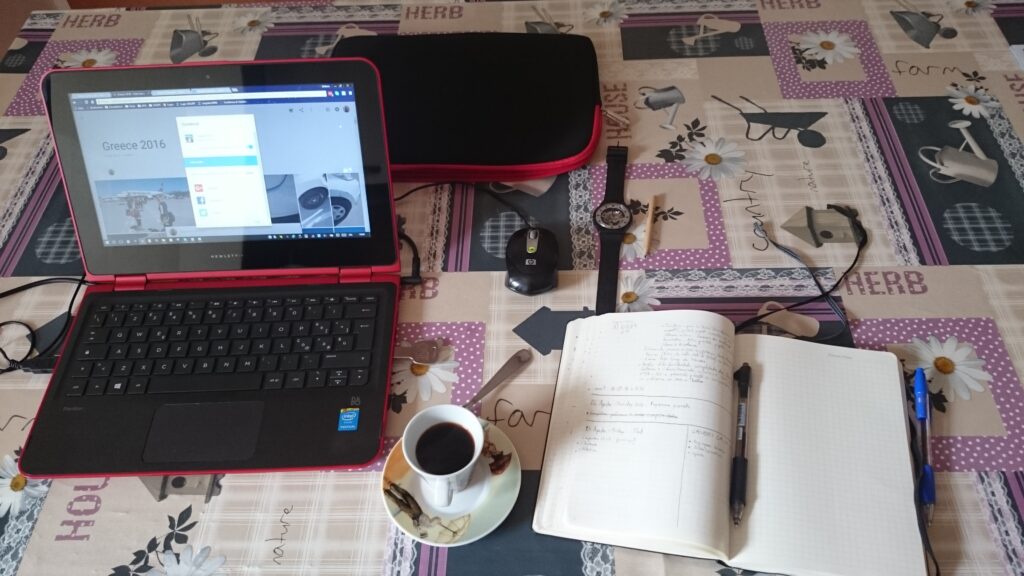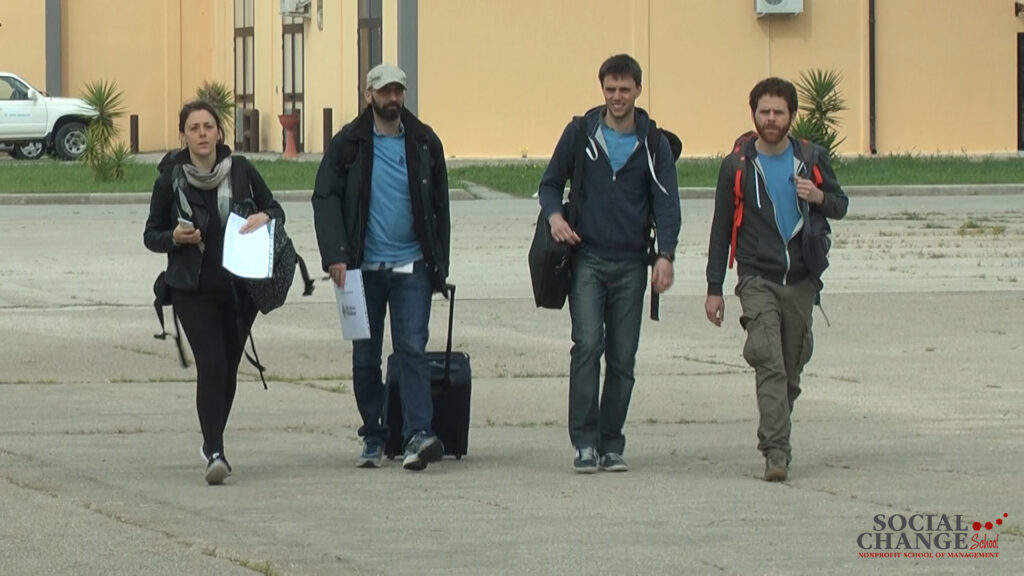Stefano Oltolini | Foundation Partnership Manager for COOPI | 20 October 2016
My work is to build partnerships and raise funds, most especially from national and international Foundations. Daily, I encounter varying perspectives, priorities and modalities that are quite peculiar from each other, therefore it is very important to find a balance that is of mutual advantage for everyone involved, this became the mission during my work hours and a task that regenerated itself daily.
My “toolbox” is composed of technique, experience, patience and awareness, so that the results are achieved in a systematic and applied way. To this mix, I pay close attention to details, the topic that I would like to analyse in this article.
For a manager with relational responsibilities, and more in general for a fundraiser, close attention to details is fundamental in every stage of the Relation Cycle with either the stakeholder or social investor. We can briefly proceed by considering the stages below:
- Identification, an in-depth profiling of the subject;
- Contact or meeting, this is the initial contact and management phase of exchange done via phone, mail or in person;
- Cultivation, continuous building and tending to of the contact/relation from the meeting until the effective presentation of a funding request;
- Project presentation, the formal phase during the funding request in accordance to time and modalities of the Foundation or Donor;
- Maintenance, relation management from the approval of the contribution until the (positive) conclusion of the intervention-that transforms during the years, a simple donation into a real strategic partnership, in which the stereotyped relation between donorsimplementers is instead a more egalitarian relation between partners.
During workshops at the Social Change School, I tend to give examples of my experiences that could either be- positive or negative, some of which are very funny- with respect to the initial stage of profiling and contact making, thanks to my experience both as grant-seeker (who looks for funding/partnerships, my actual role) and as grant-manager (who in a foundation receives and analyses the requests and takes part in the meetings to evaluate a new potential partner to whom deliver resources, position that I have covered for almost 10 years).
Believe me, you should always pay maximum attention to the initial introductory contact. Behind the procedures, methodologies, professionalism and project effectiveness (of “the product” you are proposing) we are all still people, and so, we evaluate our interlocutor -and we are evaluated – from the very first sentences.
A relationship that starts the wrong way because of delay, a misunderstanding, shortcoming to fulfilling of expectations or operative modalities that we simply did not know, or because we were clearly not prepared for the meeting, all these scenarios will hardly evolve into a positive partnership, even if the project/product that we propose is in line with the expectations of the other side.
On the coontrary, every human relation, with a good first impression produces empathy, mutual availability and attention to the collaboration, this will aid to overcome obstacles, even formal ones, related to the project or organisation that we represent.
Attention to the detail starts by an excellent Profiling of the interlocutor or Foundation with which we would like to start a partnership with (attention, the language is important too- I did not say “from whom we would like to raise funds” intentionally). We need to try to know everything that is accessiible about them: who they are, what they do, their priorities, their mission/vision, how they work, how they select new partners and what projects they had worked on in the past that are similar to ours. An in-depth study of all the determinants are essential; during the initial synthesis we can further comprehend the position of the leader (director-president), understand the current issues the Foundation works on, fathom the financial annexes, philanthropic activities and the volumes of supply.
An in-depth analysis of the staff should help us provide a series of nominatives and experiences to start thinking about an advantageous contact. Contrarily to what many people think, expecting to talk to the director-president is not always the best solution, and surely not the most effective. In the Foundations, as well as in every CSO (Civil Society Organization– acronym that I prefer for the non profit organisation that employ professionals); there are specific people responsible for thematic or geographic programmes (we will call them: desks) with the specific duty to deal with new and existing partners. These individuals are our relational “target”. They are often in a medium/high senior positions, and their bios are often available online or on LinkedIn. They usually adopt specific procedures and modalities, we prepare for the meeting respecting and allotting close considerations to the details.
During my experience as grant-manager, I have seen macroscopic mistakes repeated many times. Contact callings are executed by young interns who do not have a clear scheme, and would be asking for information that is easily available on the website. Arrogant presidents, who only consider discussing with other Presidents, with the connotation of “don’t you know who I am”. Mails full of spelling mistakes, poor cut and paste, rude or totally inappropriate tones(in 2016, we cannot use solemn formalities, but we also must not start the first presentation letter in an informal way).
While preparing the first phone call or first mail, we should do so accurately. We should be empathic, synthetic, clear, competent, but also showing the passion and enthusiasm for our job. Above all, we should try to put ourselves in the place of the interlocutor and learn how to listen, more than talking about ourselves all the time. We work in stages: the objective of the first contact is to give a brief presentation and above all to have the occasion for a face-to-face meeting, we shouldn’t talk about the details of a project on the phone or via email.
If we obtain a meeting, it is extremely helpful, in order to be prepare, to know who it is going to be with,wee also do this when looking for a job. Excluding exceptional cases, when it would be impossible to obtain the information, but it is always better know who we are going to meet in advance. Before the meeting, we should know everything we can about that person: professional bio on LinkedIn, articles published on social media and academic environment, comments gathered by mutual contacts or by previous grantees (organisations that have already beneficiated a contribution) etc.
Depending on the interlocutor, my preparation for the meeting differ and cannot be standarised. If I know I will meet the President/Founder, male, maybe of a certain age and experience in an Italian Foundation, or in the case of a meeting with a female Director, expert in communication and famous fundraiser of a philanthropic reality in Switzerland, or the young Program Associate of an American Foundation, with not many years of experience, I know that they all are professional figures from a thematic niche of which I may not a great deal about.
Some valuable suggestions for any occasion, at any latitude:
- Never be late. Time keeping is fundamental, I consider it offensive when punctuality is kept, and I have always despised the Italian custom of the “15 minutes of tolerance”. A professional, carefully studies the place, setting of the meeting, especially if abroad, he/she arrives very well in advance to avoid unexpected problems, and shows up to the appointment a couple of minutes earlier than agreed, sufficiently relaxed and calm.
- Wearing sober and professional clothes: we are not going to a wedding but neither aree we visiting the gym. Suit and shirt for the man- usually without a tie- and the equivalent for women.
- Preparing a line up and managing it at ease will help. Ask questions often in order to understand the trustee’s point of view and not make assumption onthe finality of your project.
- Carefully prepare the tools: what we intend to use (presentations, balances, project synthesis) and present the interlocutor with a tidy folder, with business card included.
- Be ready to improvise if conditions change: even if we have a splendid presentation on our laptop it is important to be flexible enough (this is because you could end up holding the meeting in a coffee shop, it happened to me many times!) we need to know how to proceed anyway. Sometimes it can also be the opposite: I was expecting to have a quiet meeting with an intermediate desk but I met, without notice, the vertices (Director and President) with this opportunity I must be ready to delve into the project and explain in detail- imagine what disaster it would have been if I was not ready!
- Keep an eye on the time: also the most proficous meeting cannot go on over the pre-established time. When you realise that time is running out, think and precisely summarise the points covered and an additional step to take could be to send documents or projects before deadlines.
- Right after the meeting, as soon as you are back, send an email immediately expressing your thanks, and in that same email, insert the same conclusions you mentioned at the end of the meeting. Remember that the desks that received you will probably create a folder on your organisation where they will save your communications with also a report of the meeting. If you write the report, you are going to even be more appreciated.
To conclude, paying attention to detail means taking care of the relation. Therefore, as attention and commitment are needed for the growth in every form of life, initiating and cultivating a relationship with a potential investor partner needs special attention for the details.
Please, let me know if you agree with me and share, if you want, some thoughts or professional experiences. Thank you.




